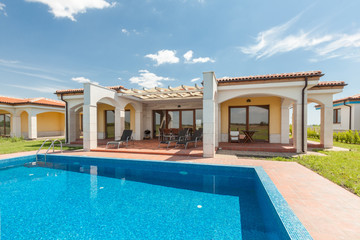When a couple decides to end their marriage, dividing joint assets can be complex, especially when it comes to property of high value. Vacation homes are often significant pieces of real estate that carry emotional and sentimental value for a family. Understanding how a vacation home can be split between spouses upon their divorce is an important consideration. Work with an experienced Oakland County property distribution lawyer for skilled legal advice and representation during your divorce.
Are Vacation Homes Marital Assets?
Before it can be determined how a vacation home will be divided in property distribution, the couple must figure out whether or not the asset is considered jointly owned or separate property. Vacation homes may or may not be considered marital assets depending on the details of the situation.
If the property was purchased during the marriage or with marital funds, it is considered jointly owned. If one spouse purchased the home before the marriage or inherited the property, it could be considered separate. However, if the other spouse made contributions to the property, whether financial or otherwise, it will be counted as a marital asset.
Equitable Distribution vs Community Property
The way that marital assets are divided in a divorce depends on the state where the divorce is being filed and the laws that are enforced there. In the United States, property can be divided through equitable distribution or community property.
Equitable distribution is the process of dividing jointly owned assets fairly between a couple but not necessarily equally. In community property states, however, all marital property is divided and split 50/50 between parties regardless of the specific circumstances or financial situations of the spouses. Michigan is an equitable distribution state.
How Can a Vacation Home Be Split in a Divorce?
As long as the split is considered equitable for both parties, a vacation home can be divided in several ways. The most obvious and often simplest solution is to sell the property. A court can determine how much of the home each spouse is entitled to and the proceeds of the sale can be divided between the parties.
If one spouse wants to retain ownership of the home, however, they may choose to buy out the other. In cases like these, one spouse will purchase the other’s share of the property. The amount they pay will be based on an appraisal of the home’s value and equitable distribution determined by the court.
Depending on the details of the relationship the spouses may choose to continue co-ownership of the vacation home. While this setup can be contentious for some, it may work if the couple shares children and wants the home to remain in the family or if neither individual is willing to part with the property.
There are many solutions to dividing a vacation home during a divorce. For more information on your legal rights and options, reach out to a skilled attorney today.
